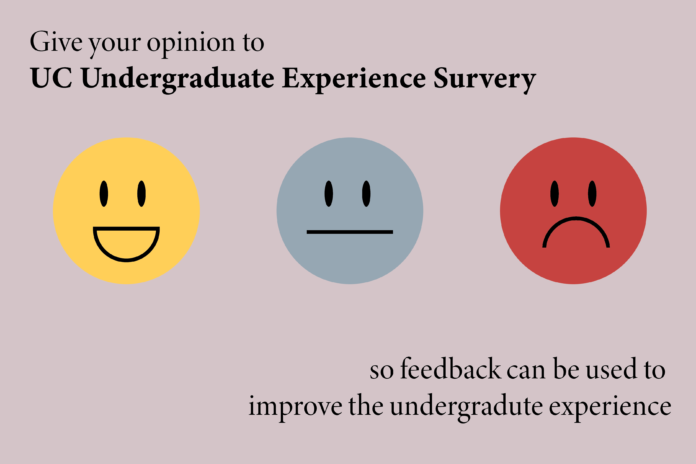2020 survey measures campus climate, academics, accessibility of resources to support students, food and housing security
This year’s UC Undergraduate Experience Survey (UCUES), one of the biggest UC student surveys, is now open to all undergraduate students. The survey, conducted biennially across the system since 2004, has questions covering campus climate for diversity and inclusiveness, activities and skills, food and housing security, academics and the effects of COVID-19 on students’ learning experience.
The survey also gauges academic and personal development, availability of channels to express complaints, financial burden, mental health and summer session offerings.
Assistant Director of UC Davis Institutional Analysis Erika Jackson said the rest of the analysis team will spend the summer reviewing the 2020 UCUES results and share their findings with administration, campus leaders and students.
“The data is always used in Undergraduate Program Review to help programs understand students’ perceptions, but we are really starting to integrate the data into many more conversations about campus climate, research opportunities, availability of support services and more,” Jackson said.
Specific to this year’s coronavirus pandemic, the UCUES is also gathering data on concerns about how COVID-19 has affected student learning in terms of reliable internet access, appropriate study space, learning support services and effective learning in a remote instruction environment. The survey also asked how the pandemic has impacted graduating on time, paying bills, feelings of isolation, access to healthcare and meeting basic needs.
“We will share results to the COVID-19 questions with colleagues in Information and Educational Technology (IET), Undergraduate Education, Student Affairs and more to ensure that everyone is aware of what challenges our students are facing during these uncertain times,” Jackson said. “These offices have been working around the clock to help provide access to computers for students who need them, help faculty make remote instruction as effective as possible and provide services remotely, like tutoring which may be more important than ever.”
Additionally, this year’s survey has new questions about housing security and summer sessions. Jackson noted that adding new questions and topics will provide more context around these issues for experts who study housing and food insecurity, as well as help better understand how to make summer session offerings attractive and productive for students.
“Knowing why students aren’t currently utilizing summer [sessions] can help us better design our offerings in the future,” Jackson said. “Utilizing summer sessions can be a great way for students to ensure that they graduate in four years, but only if the courses they need are offered, in formats that are conducive to learning over the summer.”
In previous years, the data collected from UCUES has led to the implementation of new campus resources and initiatives to better support students.
“Every student has a voice and UCUES has produced positive change on the campus,” Chancellor Gary May said in an email to undergraduate students. “Years ago the ASUCD established The Pantry after student advocacy and UCUES data revealed the need.”
Jackson explained that The Pantry may be the best example of a unit created directly because of UCUES data. The data also generally provides a more broad understanding of the campus’ strengths and weaknesses overall, which helps campus leaders understand where to focus resources and attention at a variety of levels.
“Individual departments use these data, broken down at the major level, to see how effective their program is compared to their college and university,” Jackson said. “Units working with specific populations of students can cut the data by race or ethnicity, first generation status, gender and more to see where their students are thriving and where they need to focus attention. We are working to have more and more leaders across campus utilize the results of this survey to make the most possible use out of the time and efforts students put into sharing their feedback with us.”
Written by: Graschelle Fariñas Hipolito — campus@theaggie.org




